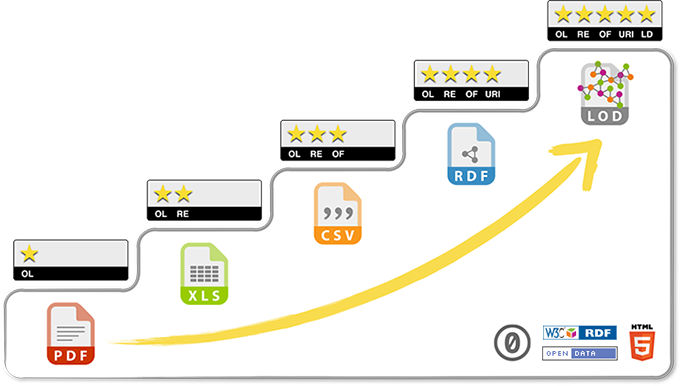Microcredentials
- May 2024
-
www.insidehighered.com www.insidehighered.com
- Feb 2024
-
www.cedefop.europa.eu www.cedefop.europa.eu
-
This is often described as a mainreason why qualification systems not opened to all types of credentials
Barrier is about burden to status quo...if sustainable process existed, would systems accommodate something that is probably in learners' interests?
-
attribute a quality label to credentials outsidethe formal system
Model for HE to value high quality external (non-accredited) credentials
-
The mainfactors limiting the level of trust include: doubts about the quality of somemicrocredentials, no agreed standards for quality assurance, and uncertainty as towhether certain microcredentials will be recognised by national authorities,employers or education and training providers
Seeds of doubt on MC quality
-
Assigning credits to learning outcomes allows for the accumulationof units of learning and provides for transferability from one setting to another forvalidation and recognition. Interviewees representing countries in which VETsystems are modularised indicated that modules are designed to indicate a set oflearning outcomes that are expressed in terms of credits. The interviewees fromnational authorities and VET providers commonly agreed that the introduction ofmodular structures in VET and the application of a learning outcomes-basedapproach was set to provide more individualised training paths, enabling accessand progression for learners.
Align Learning Outcomes to Credits (key for meaningful unbundling/bundling)
-
microcredentials must be transparent and understandable and shouldinclude summary of critical information such as:(a) the title;(b) the duration of a learning activity;(c) provider of the course;(d) description of the content;(e) learning resources;(f) type of assessment;(g) credits attributed to the course;(h) prerequisites needed for enrolment;(i) learning outcomes;(j) body ensuring the quality of the course;(k) options for stackability, if any
11 data elements for transparency
-
- Apr 2023
-
campustechnology.com campustechnology.com
-
And micro degrees or certificates give quick recognition of learning and skills achieved that are sometimes lacking in more traditional programs
Not just the content. Also the narrative. Recognition is huge.
-
- Dec 2022
-
www.youtube.com www.youtube.com
-
How can skills data be used to inform and enable micro credentialing 11 views 2 hours ago
Webinar on youtube. Added time-stamped annotations in the comments.
Tags
Annotators
URL
-
- Aug 2022
-
www.highereddive.com www.highereddive.com
-
Test ways to build earned credentials (certificates, badges, coursework) into degrees; build banks of experience (on-the-job training, internships) that earn credit; admit students simultaneously to two- and four-year institutions; guarantee transfer agreements so students don’t take numerous courses that don’t transfer into a four-year degree; set goals for meaningful employment upon graduation; and work collectively to measure our progress and hold ourselves accountable for the outcome.
-
- Jun 2022
-
www.youtube.com www.youtube.com
-
Don Presant keynote
Tags
Annotators
URL
-
- Jan 2022
-
-
The Google Career Certificates Employer Consortium consists of over 150 U.S. companies like Deloitte, Infosys, Snap Inc., Target, Verizon, and of course, Google. These companies span multiple sectors and are committed to considering Google Career Certificate graduates for entry-level jobs. Upon completion of a Google Career Certificate, you will gain access to an exclusive job platform where you can easily apply to opportunities from employers with open jobs. https://grow.google/certificates/it-support/#?modal_active=none
The consortium consists of 150 companies in December, 2021. This will increase. Significant community college reaction is (wisely?) sensing an opportunity instead of a threat. They are collaborating and indications are they will benefit across multiple verticals. I'm excited to see how this plays out in 4-year spaces of Higher Ed:
- Will HE react to a threat or an opportunity?
- How might domains like interpersonal and intercultural skills be credentialed in a way that fosters an interoperable ecosystem between HE and industry efforts like this?
- How will HE endeavor to consume credentials issued by non-accredited bodies?
-
- Dec 2021
-
www.westga.edu www.westga.edu
-
MOOCs), badges, and microcredentials
-
- Mar 2021
-
www.youthvoices.live www.youthvoices.live
-
But how reliable are micro-credentials as indicators of student learning? How should micro-credentials be interpreted as indicators of academic potential?
Interesting distinction between student learning and potential especially in an academic setting.
-
-
ojs.deakin.edu.au ojs.deakin.edu.au
-
Joined-up thinking, and the importance of digital literacy to active citizenship. The need for active citizenship (requiring equity of access to learning) to be a goal, to create a "more effective and equitable lifelong learning ecosystem."
-
- Mar 2019
-
digitalpromise.org digitalpromise.org
-
U.S. Through these stories from and discussions with our Beacons and partners, we offer educators and developers specific examples of how to incorporate technology into adult learning in highly effective yet affordable ways
Digital promise is an organization that connects adult learners with methods to implement technology in useful ways to improve education. The website hosts a network of educators and the programs they offer to improve basic math and literacy skills in U.S. adults to help with job training and career advancement. There is also a mico-credentialing program they extend to training programs that endorse those that have learned or gained specific skills. Rating 5/10
-
- Nov 2017
-
events.educause.edu events.educause.edu
-
Moving to a Web of Linked Data for Credential Ecosystems
Oh? Credentials going Semantic? CBE going TBL?

Might be worth a deeper discussion with @jeffgrann, at some point.
-
-
www.imsglobal.org www.imsglobal.org
-
The IMS Global Competencies and Academic Standards Exchange™ specification (CASE)™ is used to exchange information about learning and education competencies. CASE also transmits information about rubrics, criteria for performance tasks, which may or may not be aligned to competencies.
Interesting that they explicitly talk about tasks which may not be aligned to competencies. Leaves room for co-curricular activities and microcredentials.
-
- Oct 2017
-
blog.blackboard.com blog.blackboard.com
-
If students do not complete the courses they need to graduate, they can’t progress.
The #retention perspective in Learning Analytics: learners succeed by completing courses. Can we think of learning success in other ways? Maybe through other forms of recognition than passing grades?
-
- Jul 2017
-
er.educause.edu er.educause.edu
-
Shaping the Educational Technology Innovation Ecosystem
Lots of technical detail on NGDLE from IMS leadership.
-